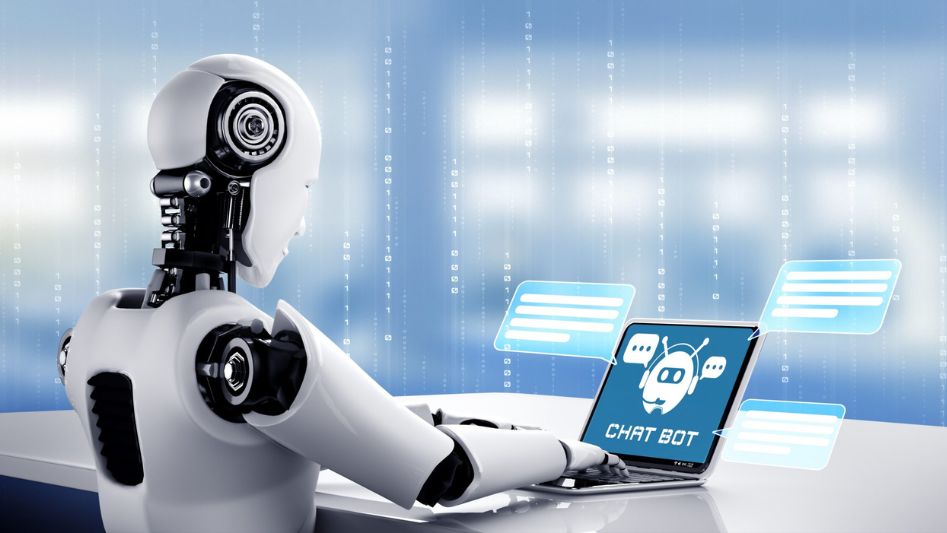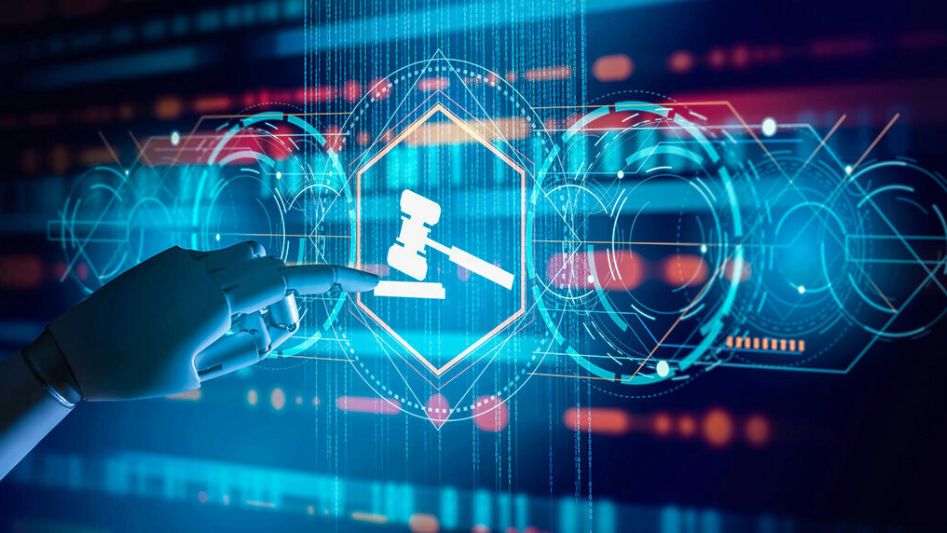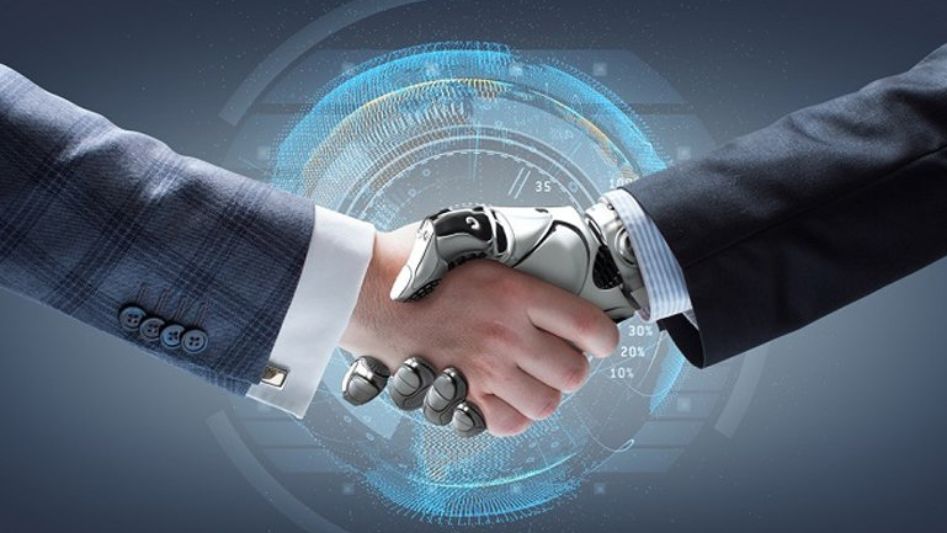Artificial Intelligence (AI) has become an integral part of our everyday lives, impacting various aspects of society, from healthcare to entertainment. This article will delve into the profound effects of AI and how it influences our daily routines, decision-making processes, and interactions. We will explore the benefits, challenges, and ethical considerations surrounding AI, providing a comprehensive understanding of its impact on society.
Table of Contents:
We invite you to read: “THE FUTURE OF ARTIFICIAL INTELLIGENCE: A LOOK AT ADVANCEMENTS IN MACHINE LEARNING”

How Does AI Affect Our Daily Lives?
AI is an omnipresent force that shapes our daily lives in ways we may not even realize. From the moment we wake up until we go to sleep, AI plays a significant role. Let’s explore some of the areas where AI has made an impact.
1. Personal Assistants and Voice Recognition
AI-powered personal assistants, such as Siri, Alexa, and Google Assistant, have revolutionized the way we interact with technology. These intelligent voice recognition systems can answer questions, perform tasks, and even control smart home devices. Their ability to understand natural language and adapt to user preferences has made them invaluable companions in our daily routines.
2. Smart Home Automation
AI has enabled the creation of smart homes that can be controlled remotely and autonomously. Through AI algorithms, devices like thermostats, lights, and security systems can learn our behavior patterns and adjust settings accordingly. For example, your home can detect when you’re away and automatically turn off unnecessary appliances, leading to energy savings.
3. Personalized Entertainment Recommendations
Streaming platforms like Netflix and Spotify leverage AI algorithms to provide personalized recommendations based on our viewing or listening habits. These systems analyze vast amounts of data, including user preferences, ratings, and viewing history, to suggest content tailored to individual tastes. As a result, we can discover new movies, TV shows, or music that align with our interests.
4. Virtual Assistants in Healthcare
AI has found a significant place in the healthcare industry, aiding professionals in diagnosing diseases, recommending treatments, and monitoring patient health. Virtual assistants equipped with AI algorithms can analyze medical records, symptoms, and patient history to assist doctors in making accurate diagnoses. This technology has the potential to enhance medical outcomes and reduce human errors.
5. AI in Transportation and Navigation
The rise of ride-hailing services and navigation applications like Uber and Google Maps has transformed how we navigate and commute. AI algorithms optimize routes, estimate travel times, and suggest the most efficient transportation options. These tools make our journeys smoother and more predictable, saving time and reducing stress.
We invite you to read: “THE EVOLUTION OF ARTIFICIAL INTELLIGENCE: PAST, PRESENT & FUTURE”

The Benefits and Advantages of AI in Our Lives
The integration of AI into everyday life brings numerous benefits and advantages. Let’s explore some of them:
1. Efficiency and Time Savings
AI automates repetitive tasks and processes, enabling us to accomplish more in less time. From automated customer service chatbots to robotic process automation in businesses, AI streamlines operations, freeing up human resources for more complex and creative endeavors.
2. Enhanced Decision Making
AI-powered analytics and predictive modeling assist in making data-driven decisions across various domains. For instance, financial institutions use AI algorithms to analyze market trends and predict investment outcomes. AI provides valuable insights that aid in informed decision-making.
3. Improved Accessibility
AI technologies have enhanced accessibility for individuals with disabilities. Voice recognition systems enable hands-free operation for those with mobility impairments, while visual recognition technology assists the visually impaired. AI-powered tools empower individuals to navigate and interact with the world more effectively.
4. Personalized Experiences
AI algorithms analyze vast amounts of data to personalize user experiences. Online shopping platforms utilize AI to recommend products based on individual preferences and purchase history. Similarly, streaming services suggest movies and shows tailored to our tastes. AI enhances our interactions with technology by making them more tailored and relevant to our interests.
5. Advancements in Healthcare
AI has the potential to revolutionize healthcare by improving diagnostics, treatment plans, and patient outcomes. Machine learning algorithms can analyze medical images, such as X-rays or MRI scans, to detect abnormalities with higher accuracy than humans alone. AI also aids in drug discovery, accelerating the development of new treatments.
Ethical Considerations and Challenges of AI
While AI brings significant benefits, it also raises ethical considerations and challenges that need careful attention. Let’s explore some of these concerns:
1. Privacy and Data Security
AI systems rely on vast amounts of data to learn and improve. This reliance raises concerns about privacy and data security. How can we ensure that our personal information is protected? Who has access to the data collected by AI-powered devices and applications? Addressing these concerns is crucial to maintain public trust in AI.
2. Bias and Fairness
AI algorithms are only as unbiased as the data they are trained on. If the training data contains biases, the AI system may perpetuate or amplify them. For example, facial recognition systems have been shown to have higher error rates when identifying individuals with darker skin tones. Ensuring fairness and minimizing bias in AI systems is a critical challenge.
3. Job Displacement and Workforce Transitions
The automation capabilities of AI raise concerns about job displacement and the need for workforce transitions. As AI replaces certain tasks and roles, there is a growing need for reskilling and upskilling to adapt to the changing job landscape. Preparing the workforce for the AI-powered future is essential for minimizing disruption and ensuring economic stability.
4. Ethical Decision Making
AI systems are increasingly making autonomous decisions that impact individuals and society. This raises questions about accountability and ethical decision making. Who is responsible when an AI system makes a mistake or causes harm? Developing frameworks for responsible AI governance and decision-making processes is crucial for navigating these ethical challenges.
5. AI and Social Inequality
There is a concern that AI technologies may exacerbate existing social inequalities. If access to AI-powered services or resources is limited to certain groups, it can deepen the digital divide. Ensuring equitable access to AI and addressing potential disparities is essential to prevent further marginalization of already disadvantaged communities.
We invite you to read: “IMPACT OF ARTIFICIAL INTELLIGENCE ON EDUCATION INDUSTRY”

Conclusion
AI has become an integral part of our everyday lives, transforming the way we interact with technology and influencing various aspects of society. While there are significant benefits to be gained from AI, it is essential to address the ethical considerations and challenges it presents. By embracing responsible AI practices and actively participating in shaping its future, we can harness the power of AI to improve our lives and create a more inclusive and equitable society.
FAQ
What is the future of AI in everyday life?
As AI continues to advance, its integration into everyday life will likely become even more prominent. We can expect AI to further enhance personalization, automation, and decision-making across various domains, ranging from healthcare to education and entertainment.
Can AI replace human creativity?
While AI can assist in creative tasks, it is unlikely to replace human creativity entirely. AI excels at processing large amounts of data and generating outputs based on patterns, but true creativity often involves intuition, emotional intelligence, and unique human experiences.
Are there any risks associated with AI?
Yes, there are risks associated with AI, including privacy concerns, bias in algorithms, job displacement, and potential ethical dilemmas. However, with careful planning, regulation, and ethical considerations, these risks can be mitigated.
You May Also Like
- THE FUTURE OF ARTIFICIAL INTELLIGENCE: THINGS TO EXPECT AFTER 10 YEARS
- HOW WILL ARTIFICIAL INTELLIGENCE CHANGE THE FUTURE OF MARKETING? [5 IMPACTFUL OUTCOMES]
- PREDICTION OF ARTIFICIAL INTELLIGENCE ABOUT NATURAL DISASTERS
- CAN ARTIFICIAL INTELLIGENCE REPLACE HUMANS? FIND OUT HERE!
- IMPACT OF ARTIFICIAL INTELLIGENCE ON EDUCATION INDUSTRY | FUTURE OF AI EDUCATION SYSTEMS
HELPFUL LINKS
- Exploring the Impact of Artificial Intelligence on Business and Everyday Life
- Impact of Artificial Intelligence on our Everyday Life
- Top 4 Examples of Artificial Intelligence in Day-to-Day Life [2023]
- Benefits of Artificial Intelligence: How it Contributes to Our Society and Economy
- The Future of Artificial Intelligence: How AI Will Change the World


Recent Comments